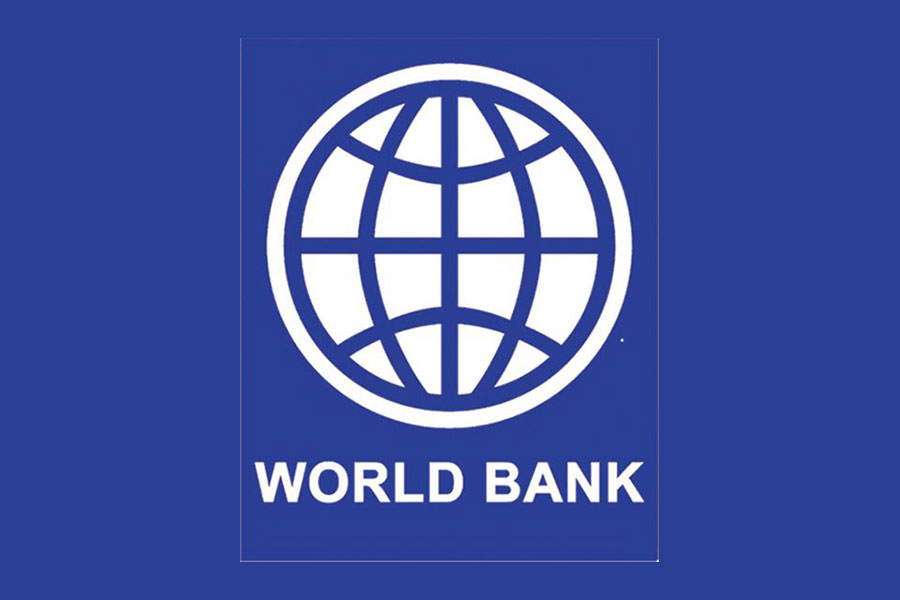
Radar | Jul 02,2022
Jun 18 , 2022
By Bjorn Lomborg
A global food crisis is looming, so policymakers everywhere need to think hard about how to make food cheaper and more plentiful. That requires making a commitment to producing more fertiliser and better seeds, maximising the potential offered by genetic modification, and abandoning the rich world's obsession with organics.
Russia's brutal war in Ukraine is making less food available because the two nations have been responsible for more than a quarter of global wheat exports and big quantities of barley, corn and vegetable oil. On top of punishing climate policies and the world emerging from the pandemic, prices of fertiliser, energy, and transport are soaring, and food prices have climbed 61pc over the past two years.
The war has exposed some harsh truths. One is that Europe – which portrays itself as a green energy trailblazer – is highly reliant on Russian gas, especially when the sun is not shining or the wind is not blowing. The war has reaffirmed the basic reality that fossil fuels remain crucial for the vast majority of global needs. And the emerging food crisis now reveals another harsh truth: organic farming cannot feed the world and could even worsen future crises.
Long simply a fashionable trend for the world's one percent, environmental activists have increasingly peddled the beguiling idea that organic farming can solve hunger. The European Union is actively pushing for a tripling of organic farming on the continent by 2030, while a majority of Germans actually think organic farming can help feed the world.
However, research shows that organic farming produces much less food than conventional farming per hectare. Moreover, organic farming requires farmers to rotate soil out of production for pasture, fallow or cover crops, reducing its effectiveness. In total, organic approaches produce between a quarter and half less food than conventional, scientific-driven agriculture.
This not only makes organic food more expensive, but it means that organic farmers would need much more land to feed the same number of people as today - possibly almost twice the area. Given that agriculture currently uses 40pc of Earth's ice-free land, switching to organics would mean destroying large swathes of nature for less effective production.
The catastrophe unfolding in Sri Lanka provides a sobering lesson. The government last year enforced a full transition to organic farming, appointing organics gurus as agricultural advisors, including some who claimed dubious links between agricultural chemicals and health problems. Despite extravagant claims that organic methods could produce comparable yields to conventional farming, within months the policy produced nothing but misery, with some food prices quintupling.
Sri Lanka had been self-sufficient in rice production for decades but tragically has now been forced to import 450 million dollars worth of rice. Tea, the nation's primary export crop and source of foreign exchange, was devastated, with economic losses estimated at 425 million dollars. Before the country spiralled downward toward brutal violence and political resignations, the government was forced to offer 200 million dollars in compensation to farmers and come up with 149 million dollars in subsidies.
Sri Lanka's organic experiment failed fundamentally because of one simple fact: it does not have enough land to replace synthetic nitrogen fertiliser with animal manure. To shift to organics and keep production, it would need five to seven times more manure than its total manure today.
Synthetic nitrogen fertilisers, mostly made with natural gas, are a modern miracle, crucial for feeding the world. Largely thanks to this fertiliser, agricultural outputs were tripled in the past half-century, as the human population doubled. Artificial fertiliser and modern farming inputs are the reason why the number of people working on farms has been slashed in every rich country, freeing people for other productive occupations.
In fact, one dirty secret of organic farming is that, in rich countries, the vast majority of existing organic crops depend on imported nitrogen laundered from animal manure, which ultimately comes from fossil fuel fertilisers used on conventional farms.
Without those inputs, if a country - or the world - were to go entirely organic, nitrogen scarcity quickly becomes disastrous, just as we saw in Sri Lanka. That is why research shows going organic globally can only feed about half the current world population. Organic farming will lead to more expensive, scarcer food for fewer people, while gobbling up more nature.
To sustainably feed the world and withstand future global shocks, we need to produce food better and cheaper. History shows that the best way to achieve that is by improving seeds, including by using genetic modification, along with expanding fertiliser, pesticides and irrigation. This will allow us to produce more food, curb prices, alleviate hunger and save nature.
PUBLISHED ON
Jun 18,2022 [ VOL
23 , NO
1155]


Radar | Jul 02,2022

Radar | Feb 23,2019

Viewpoints | Nov 09,2024

Fortune News | Jan 13,2024

Radar | Jun 25,2022

Radar | Jul 13,2020

Commentaries | Sep 10,2023

Viewpoints | Aug 29,2020

Commentaries | Dec 10,2018

My Opinion | Apr 13, 2025

Photo Gallery | 175669 Views | May 06,2019

Photo Gallery | 165889 Views | Apr 26,2019

Photo Gallery | 156277 Views | Oct 06,2021

My Opinion | 136839 Views | Aug 14,2021

Dec 22 , 2024 . By TIZITA SHEWAFERAW
Charged with transforming colossal state-owned enterprises into modern and competitiv...

Aug 18 , 2024 . By AKSAH ITALO
Although predictable Yonas Zerihun's job in the ride-hailing service is not immune to...

Jul 28 , 2024 . By TIZITA SHEWAFERAW
Unhabitual, perhaps too many, Samuel Gebreyohannes, 38, used to occasionally enjoy a couple of beers at breakfast. However, he recently swit...

Jul 13 , 2024 . By AKSAH ITALO
Investors who rely on tractors, trucks, and field vehicles for commuting, transporting commodities, and f...

Oct 18 , 2025
The political establishment, notably the ruling party and its top brass, has become p...

Oct 11 , 2025
Ladislas Farago, a roving Associated Press (AP) correspondent, arrived in Ethiopia in...

Oct 4 , 2025
Eyob Tekalegn (PhD) had been in the Governor's chair for only weeks when, on Septembe...

Sep 27 , 2025
Four years into an experiment with “shock therapy” in education, the national moo...

Oct 18 , 2025 . By NAHOM AYELE
In a sweeping reform that upends nearly a decade of uniform health insurance contribu...

A bill that could transform the nutritional state sits in a limbo, even as the countr...

Oct 18 , 2025 . By SURAFEL MULUGETA
A long-planned directive to curb carbon emissions from fossil-fuel-powered vehicles h...

Oct 18 , 2025 . By BEZAWIT HULUAGER
Transaction advisors working with companies that hold over a quarter of a billion Bir...